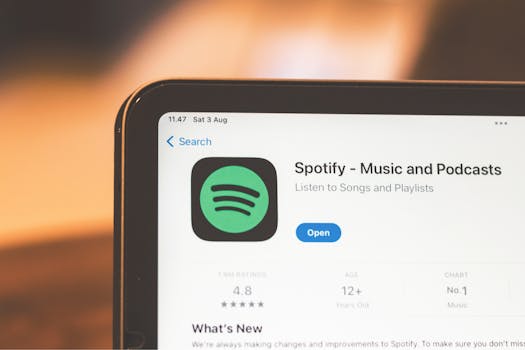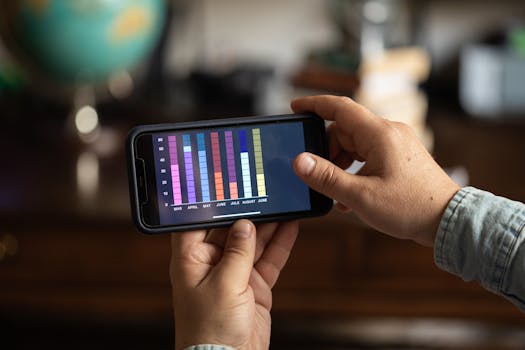Productivity
How Calendar Apps Boost Focus and Punctuality
Discover easy steps to use calendar apps for better focus and punctuality. Get actionable strategies with examples. Make routines, automate reminders, and find more calm in your day.
Advertisement
Struggling to juggle priorities can leave anyone scattered. The solution flows through your phone. People who add calendar apps into their daily flow manage commitments with less stress and fewer last-minute scrambles.
Reliable time management isn’t just for executives. Everyone—from students to freelancers to parents—relies on structure, but they rarely discuss how digital calendars quietly shape their productivity and habits over time.
Dive into this deep guide to discover practical, everyday answers. You’ll see how calendar apps become your on-call assistant, keeping you attentive, on time, and confidently handling whatever your day throws at you.
Organizing Your Day with Smart Calendar Blocks
Anchoring your day begins with specific calendar blocks. When you assign fixed time slots, distractions fade and your attention naturally sharpens, paving the way for focused work or well-timed meetings.
People using calendar apps develop the habit of blocking tasks like “Prep Reports, 9:00–9:45” or “Lunch Break, 12:15 noon.” These boundaries make time feel like a reserved space—others instinctively respect it too.
Aligning Tasks to Realistic Deadlines
Commit to deadlines directly in your calendar app, not in your head. A parent might say, “I’ll review the school emails at 8:30 AM, before the rush to the bus.” Now that task can’t get lost in the shuffle.
Instead of waiting for the perfect moment to arise, pick a time on your calendar. Once it’s set, the ambiguity goes away and you know when to show up and get things done.
Using precise blocks for each responsibility means every task competes less for attention. You’ll find yourself able to focus deeply, because your mind recognizes the boundaries between items.
Repeating Routines with Custom Recurrence
Set routines once, then let your calendar app handle the rest. Mark “review finances” every Friday at 5:00 PM, or block “focus hour” for undisturbed work every morning.
Repetition builds habits. Each recurring event acts as a gentle nudge. Soon, your natural rhythm lines up with your calendar reminders, so forgetting key steps goes away.
Every time the reminder pops up, your mind gets a cue—it’s time to switch focus or stand up and reset. Over time, those gentle cues compound into an automatic, productive routine.
| Calendar Block | Purpose | Frequency | Takeaway |
|---|---|---|---|
| Morning Deep Work | High-focus projects | Daily | Block the same hour each day to condition your attention |
| Team Check-In | Project collaboration | Weekly | Pick a fixed day so no one double-books |
| Lunch Break | Rest & recharge | Daily | Treat as non-negotiable to prevent burnout |
| Admin Review | Email, billing, routine tasks | Twice weekly | Replace scattered attention with focused catch-up sessions |
| Exercise Slot | Physical activity | 3x/week | Schedule preferred times so you’re less likely to skip |
Harnessing Alerts and Reminders for Punctuality
Consistently arriving prepared starts with using reminders from calendar apps. When alerts nudge you ahead of deadlines, you sidestep lateness and rushed starts.
Try scheduling alerts ten minutes before your next meeting, or set a gentle notification for tasks like “submit invoices.” This habit saves you from glancing at the clock in panic.
Choosing Strategic Reminder Timing
Align reminders with your preparation style. If you need time to gather materials before a call, set the alert for fifteen minutes prior. For a quick check-in, five minutes works.
- Schedule pre-task alerts: Always give yourself lead time. Preview your agenda and prepare calmly, instead of racing at the last second.
- Group reminders: Collect related tasks into one block. Use “phone calls” or “email follow-ups” so transition time shrinks and focus deepens.
- Color-code event types: Assign a color for each category—blue for meetings, green for personal time. Visually, this keeps tasks orderly so you never overbook.
- Automate event reminders: Set recurring notifications for weekly meetings or monthly reports. Automation streamlines routines and frees up mental space.
- Customize notification sounds: Pick distinct tones for work, personal, and urgent events. Sound cues tell you how quickly to respond, supporting fast decisions.
These strategies let your calendar app act as an efficient assistant, giving your day rhythm and preventing missed opportunities.
Reducing Stress with Predictable Alerts
Reliable alerts stop last-minute anxiety. Using a 30-minute warning before presentations helps you mentally switch gears and enter with confidence, rather than stumbling through introductions.
- Enable daily agenda summaries: Every morning, receive a digest of your tasks. This lets you prioritize fast, reducing time spent checking scattered lists.
- Set location-based reminders: Activate notifications that pop up as you arrive at work or school—never forget items meant for specific places.
- Try recurring reminders for medications or errands: Loop these daily or weekly so essentials aren’t forgotten, even if your typical day shifts.
- Use gentle, persistent reminders for crucial tasks: For deadlines that slip your mind, set repeating nudges until you check them off in your calendar app.
- Mute non-urgent task notifications: Silencing distracting pings keeps your energy focused, so you only react to high-priority events.
Selective reminders fuel calm, timely decisions, turning your calendar app into a safety net instead of a source of stress.
Building Lasting Focus through Visual Planning
Gaining true focus starts with giving your mind a visual map of your commitments. Calendar apps create that map on your device, revealing overlaps and guiding daily decision-making.
Compare the difference: Trying to recall tasks mentally versus seeing all responsibilities laid out—color-coded and sequenced—lets you plan ahead and tackle important work when your energy is highest.
Segmenting Your Day for Momentum
Divide your day into energy-based zones. For example: “creative work, 9:00 AM to 11:00 AM; admin, 1:00 PM to 2:00 PM.” This turns the day into purposeful chapters, not a single marathon.
Stack high-priority events early, when your brain is sharpest. Later, cluster lower-energy tasks or breaks. This sequencing brings out your strongest work at the best time.
Rethinking your schedule visually helps you recognize dangerous empty zones that can fill with distractions—plan quick resets or focused sprints to use those pockets of time.
Adapting Plans to Real-Life Changes
Plans change—meetings run long, a quick errand pops up. Calendar apps excel here: you can drag, drop, and reschedule with a swipe. No messy erasing or rewritten lists required.
When your evening plan shifts, move “read for fun” from 7:00 PM to post-dinner. The original intent stays, making you less likely to drop important habits.
Adaptability transforms your plan from rigid to flexible. The more easily you update your calendar, the more likely you are to stick to a productive flow, regardless of interruptions.
Sharing and Syncing Schedules for Team Productivity
Boosting teamwork happens when schedules sync transparently. Calendar apps bridge team silos by sharing real-time availability. Instead of trading emails to schedule, everyone sees what’s open and books efficiently.
This practice shortens planning, avoids accidental double-bookings, and encourages respect for each member’s bandwidth, whether at school, work, or volunteer groups.
Streamlining Meetings with Calendar Integration
Tie your video calls, project boards, and chat apps directly into your shared calendar app. A project manager might connect Zoom links, so “Weekly Check-In, 10:30 AM Thursday” always includes a join button inside the event.
Invitees view one version of the truth. They click without hunting for links or wondering if times have shifted since yesterday. This saves every participant up to ten minutes per meeting.
By integrating tools, you reduce confusion and ensure the agenda stays clear and actionable. Calendar apps take the friction out, making meetings run quicker and with less drama.
Supporting Accountability for Group Goals
Agreed-upon deadlines stick when every group member sees tasks on the same calendar. For example, “Draft pitch decks by 4:00 PM Wednesday” appears for everyone. Unspoken expectations become shared, visible commitments.
Public tasks nudge teammates to act. There’s gentle pressure—everyone sees who’s completed what. Celebrating success as a team becomes easier, while bottlenecks spark quick course-correct discussions, not blame.
By syncing your calendars, even large teams can establish trust and meet targets faster. Missing a step becomes rare, and shared milestones become reasons to cheer, not criticise.
Turning Mobile Calendars into Personal Assistants
You gain new freedom when calendar apps act like smart assistants. Instead of constantly checking your watch, you let your device prompt you just-in-time to pivot or complete a task.
This support lets you focus fully on your current step, knowing your priorities are safely scheduled—and your calendar app will nudge you when to switch gears.
Automating Busywork to Free Attention
Tap calendar app integrations to book appointments, send RSVPs, and update reminders automatically. For example: When email invites arrive, they sync instantly, so you never miss a change or new meeting.
Automation saves energy otherwise spent triple-checking inboxes. That headspace now fuels creative planning or uninterrupted focus. Each small task your calendar handles is one less decision cluttering your day.
Just set your rules and let the app do the rest. Manual data entry fades, and you feel more in control because repetitive, mundane steps happen in the background.
Using Smart Tags and Categories
Power up your calendar app by tagging events—#work, #family, or #exercise. Filtering schedules takes seconds, revealing your true priorities, not just urgent pop-ups.
During busy months, review your categories weekly to spot imbalance. “Too many #work meetings, not enough #fun.” Adjust to restore energy with restful or social events.
Tags make it easy to scan, evaluate, and rebalance plans on the fly. Every tag brings quick insight, helping you stay productive across all life areas without burning out on a single focus.
Designing Custom Routines with Recurring Events
Calendar apps shine when you create recurring events for priorities that matter—study blocks, language lessons, regular exercise. This builds reliable habits, taking willpower out of the equation for daily essentials.
Create one event and choose “repeat every weekday.” The app auto-populates your future calendar, so you skip the step of repeatedly entering each event by hand.
Layering Habits for Greater Consistency
Link recurring habits. For example: “Daily planning, 8:15 AM” triggers “Deep work, 8:30 AM.” Chaining events in your calendar makes each action the cue for the next, just like a domino line.
Every habit layered this way builds momentum. Eventually, you move from task to task without hesitation—focus increases as the routine solidifies, and even distractions find it hard to intervene.
Try stacking habits in logical order with short breaks. Review your stack weekly, tweaking event timing to match your natural rhythms for the strongest results.
Adapting Recurring Events for Life’s Changes
Shift recurring blocks when your schedule evolves. If a class moves from Wednesday to Tuesday, changing all future sessions in your calendar app is one tap. There’s no barrier to keeping routines aligned with your current reality.
This adaptability means your calendar evolves with you, not against you. You’ll maintain punctuality and focus, regardless of shifting seasons, school terms, or client expectations.
Regularly revisit recurring events. Refine or reschedule as priorities change, always making sure routines reflect what’s genuinely important today, not last month’s goals.
Closing Thoughts: Real Productivity Grows from Thoughtful Scheduling
Following these practical strategies, you make calendar apps more than just a digital daybook. They become hands-on tools to drive your focus, strengthen habits, and increase reliability in both solo and group contexts.
Building structure isn’t about rigidity; it’s about increasing your freedom to invest attention where it counts. Confidently using calendar apps ensures each commitment gets the space and time it deserves—so nothing gets left behind.
Over weeks and months, these habits translate into real-world gains: fewer missed commitments, smoother routines, and more windows for deep, meaningful work. With every scheduled block, you’re building a foundation for lasting productivity.
You may also like

Nutrition Tracking Apps That Make Healthy Eating Easier
Stay on top of goals with nutrition tracking apps that simplify healthy eating and make every meal balanced and mindful.
Keep Reading



